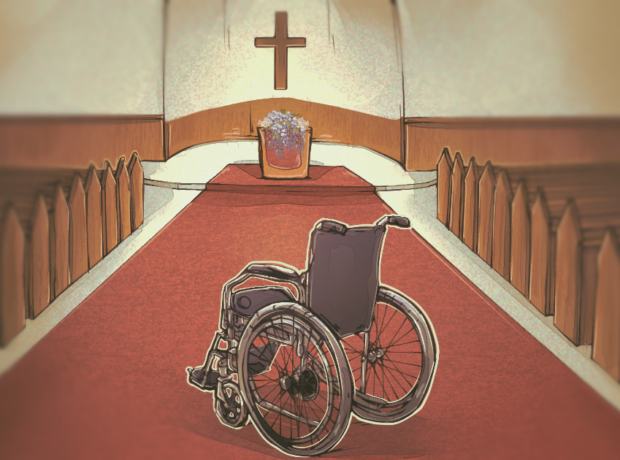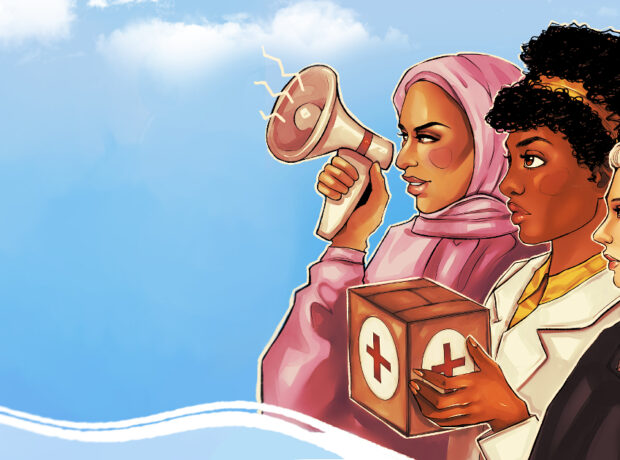What is a Law Centre? How do you become a Health and Social Care Law solicitor? And what does the daily work entail? Solicitor Emma Austin at Central England Law Centre shares her route into the role and advice for aspiring public law solicitors.
“There’s a common misconception that human rights are something very elite and high level and that if you’re working in human rights that’s always going to involve huge legal challenges where you’re taking on the state. But in reality, and in most cases, you’re working to help individuals in their daily lives to access care services, health services or accommodation. You’re helping them to not be in a state of destitution, and to not have their humanity and their dignity compromised.
“Human rights isn’t something apart from every other piece of law, it’s woven through and within other fields. So, if you find a field you’re interested in, human rights will be part of that.”
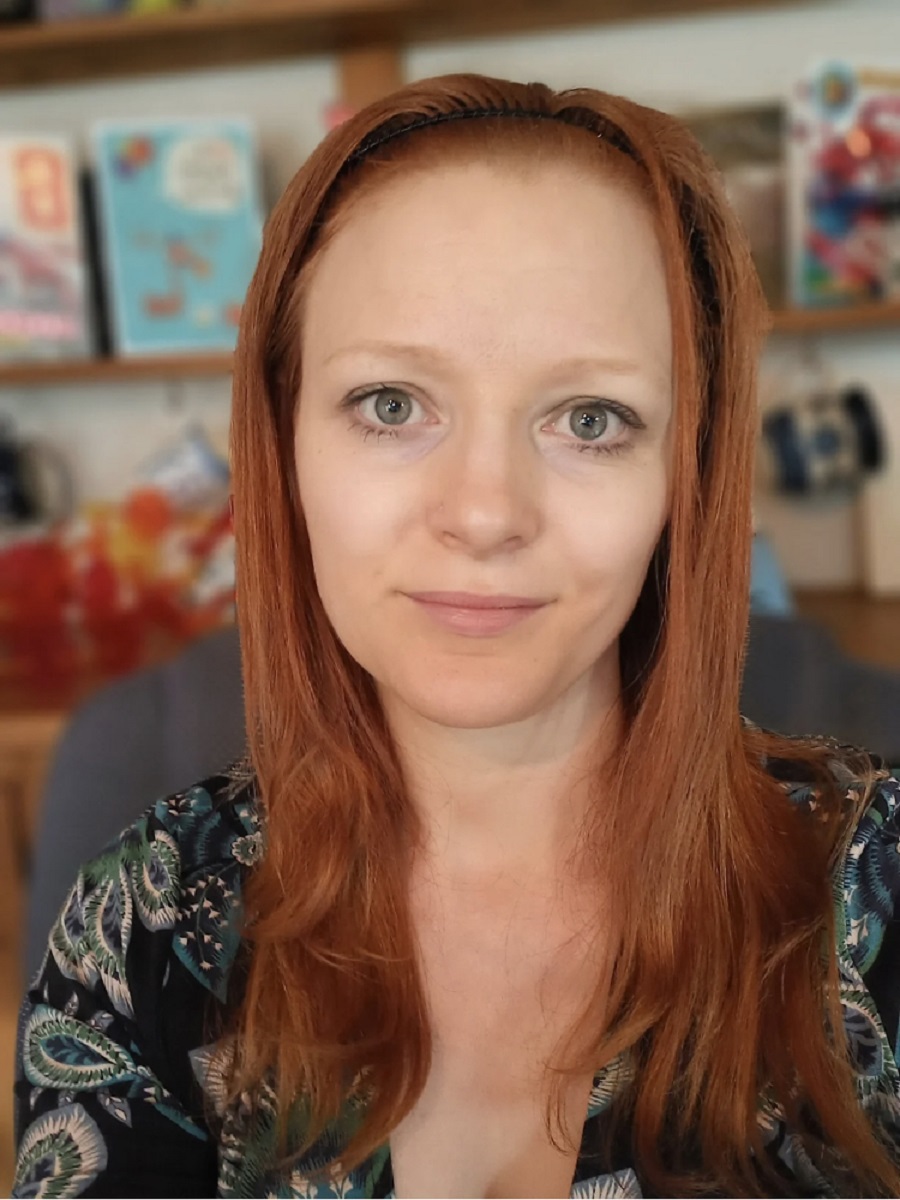
How did you become a Health and Social Care Law solicitor?
“I’ve always had a keen sense of social justice and, from an early age, wanted to do something about it, but I didn’t know this role existed. I fell into the job.
“I originally applied for a job at a firm to do immigration law. As a law student you are not made aware that there are different areas of social welfare law. But the firm thought I might be interested in Community Care Law, which we now call Health and Social Care Law. I loved the field. I enjoyed working with people with disabilities, children in care, asylum seekers and migrants.
“Now, my role at the Law Centre has moved beyond the case work I was doing in that field. I came here as a Health and Social Care solicitor but now, I focus on public legal education outreach, helping individuals to understand and pursue their rights. We are working across organisations, spreading knowledge of what we do, and supporting clients in as many ways as we can.”
What is a Law Centre and what’s your role?
“We are a charity rather than a law firm or in-house legal counsel. We are made up of solicitors and case workers and we provide specialist legal advice in a range of social welfare fields. We are not-for-profit and we provide advice for free. We do that through Legal Aid and, in some areas of law outside Legal Aid scope, through charity grant funding. We are lucky to receive some of our funding from Coventry City Council. “We try to spread knowledge and legal advice in the community. So, we do public legal education, working with individuals and those who represent them – that’s often organisations working with people with disabilities, care leavers, or migrants with no recourse to public funds. We work with them to understand what frameworks exist to support them. We then help them to pursue and enforce their rights.
“Case work is the obvious way of doing that, or strategic case work or actions that help to tackle the problem for a group of clients so you don’t have to deal with the same issue again and again in respective cases. We seek to challenge or influence systemic issues that are causing difficulties for the individuals we represent. For example, today I’m drafting a submission for review of the UK’s adherence to the International Covenant on Economic, Social and Cultural Rights.
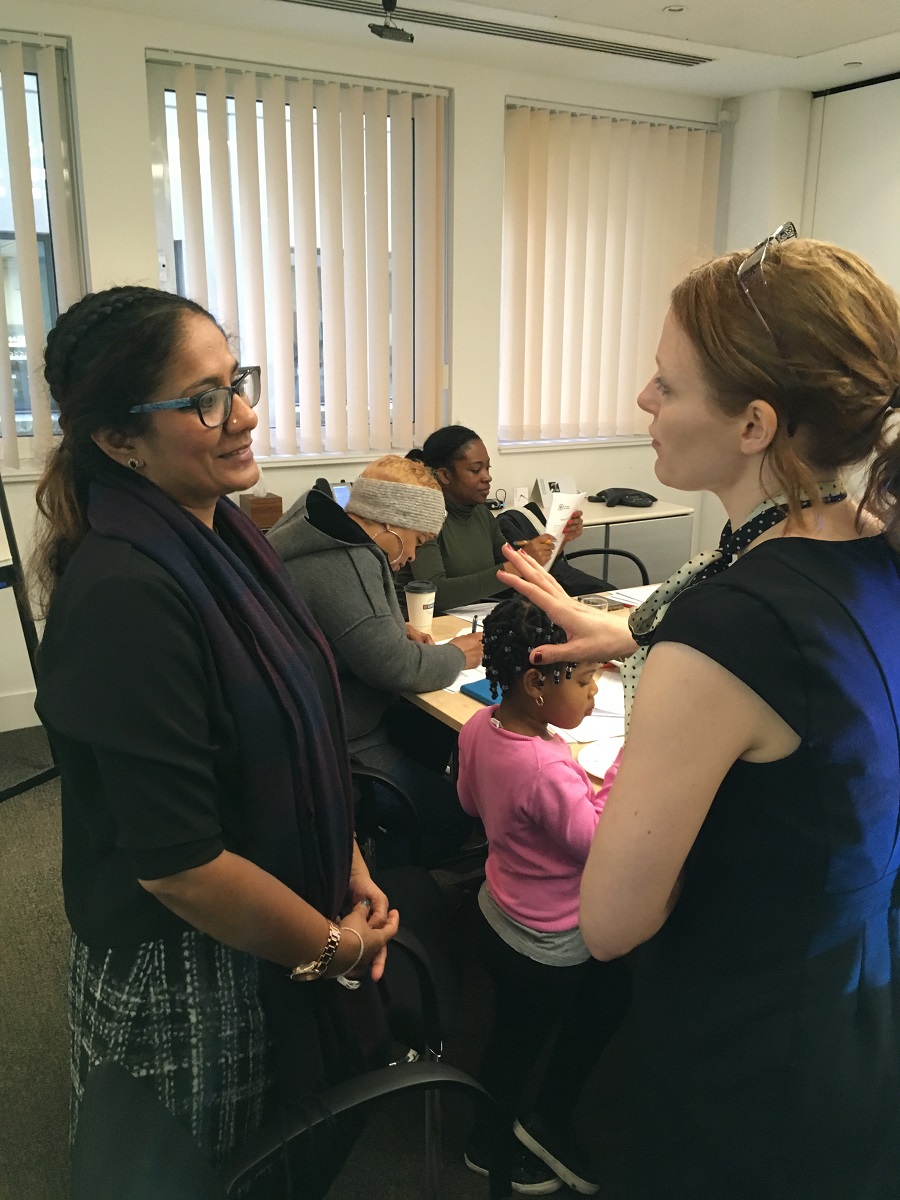
“This takes forward work done with law students from Warwick University, under one of our strategic public law clinic projects with LINC [Law in the Community], looking at local housing allowance rates and availability (or rather lack of availability) of housing in the private rented sector. The point of this work, along with other strategic public law clinic projects, is to take the knowledge and experience we’ve built up to hold the government to account in terms of their legal obligations to allow people a reasonable standard of living.
“But we also do policy engagement work at a local level with the city council to bring about changes where there are certain processes, policies or practices that we’ve found are causing difficulties for vulnerable individuals.”
What do you wish you’d known when you were a law student?
“One of the biggest challenges is not knowing what fields of law you can work in because universities are so tailored in their teaching towards corporate or criminal or high street practice, including property and contract law. A major challenge for aspiring lawyers is understanding there are routes for people who feel social justice is important, and for people who want to work with individuals and marginalised groups to solve problems.
“There’s an increasing push to try and pull people into social welfare law. And there are funded training contracts now. The Legal Education Foundation has a programme called the Justice First Fellowship, and we as a Law Centre support these kind of programmes. Obviously as a charity, with resources that need to be carefully managed, it’s difficult for organisations like ours to fund training contracts. That said, on occasion we do. But it’s not something we can offer every year. “With the new SQE (Solicitors Qualifying Exam) route, individuals can start work to get legal experience in environments like Law Centres or Citizens’ Advice Bureaux, and then take exams and qualify. So, there are options for those who don’t have the money to fund themselves entirely through qualification without working. There are paid jobs where you get the experience you need to take the SQE and become a practicing solicitor.”
What’s the best thing about being a Community Care or Health and Social Care Law solicitor?
“It’s a very interesting area of work. Every client I’ve ever had is different. There are some areas of law that are quite formulaic – you’re dealing with a certain situation that requires a certain response. But Community Care or Health and Social Care Law is diverse. Every client situation involves careful public law analysis to determine what the best response is. No two cases the same. “In terms of human rights, you might be working for somebody whose article 3 rights or article 8 rights are compromised because they don’t have the support to meet personal care or personal hygiene needs or even a roof over their heads. You might find evidence of discrimination against disabled people and their carers. You are always working with people whose circumstances mean they really need your help.
“In other areas of law you are working on a case and you can score a good result for the client but it’s not life changing. Here it is. You are dealing with the things that matter to people the most – the ability to live their life, keep a roof over their heads, have money to put food on the table. It’s not glamorous, but what you are doing really matters to the people you are working for.”
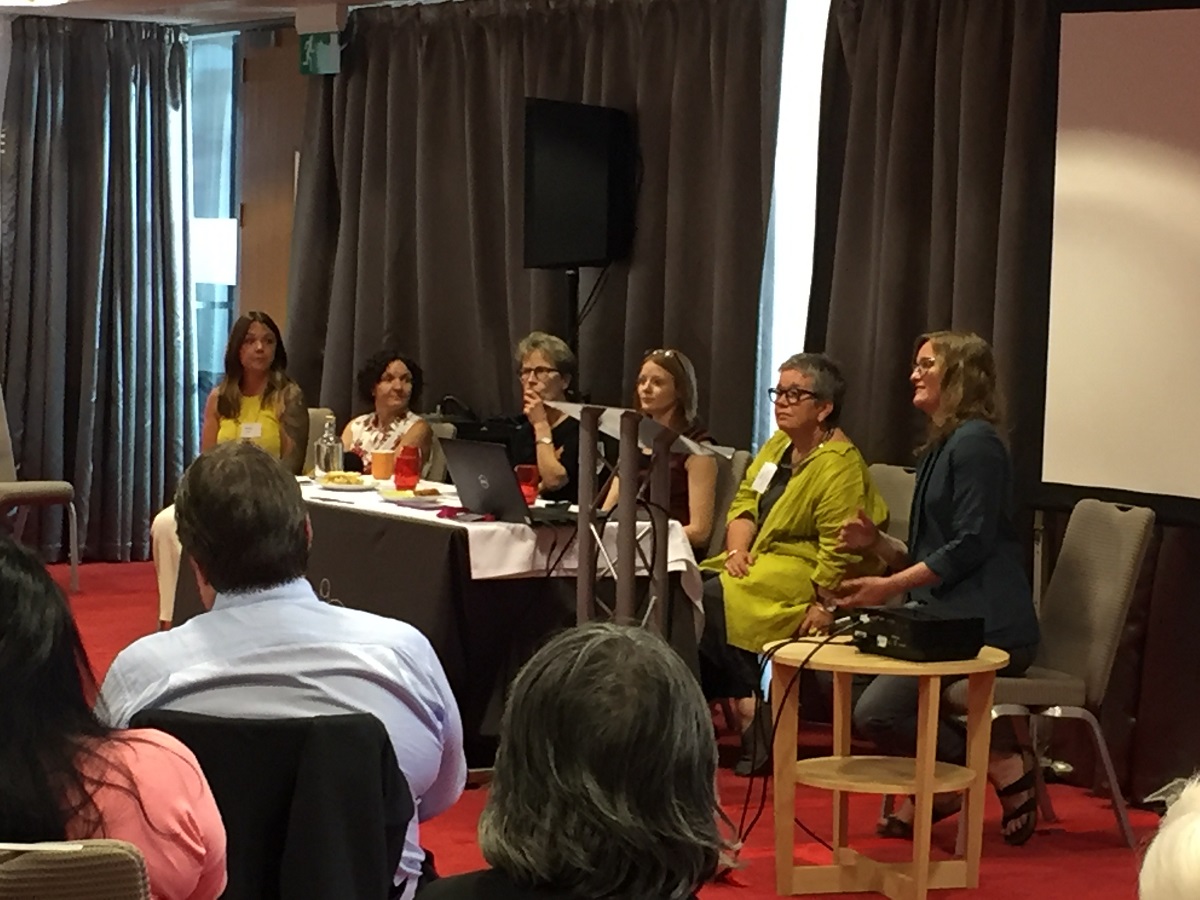
What are the highlights of your career as a Law Centre solicitor?
“We do public legal education work with groups and individuals, helping them to collectively challenge closures to the day centres or respite facilities they rely on. That’s really rewarding. Instead of doing specialist legal practice behind closed doors and keeping them out of the loop, you are bringing them along on the journey with you. So, it empowers the people you are working for. It’s their case and it’s about them. It’s not about you as a lawyer.
“I’ve also done high profile national cases but that’s good for a different reason – from an academic and professional perspective. It’s rewarding as well – but not when you’re beaten by the government!”
How do you cope with the harder parts of the job?
“It can be difficult. You are working with people who are finding themselves in incredibly difficult circumstances, and that can be harrowing. At times you can feel a sense of helplessness because situations are so dire. Often, you know that you can deal with one aspect, but there’s so much more that this family will have to endure.
“There are also pyrrhic victories. You can win an argument against the local authority, for example, where they won’t assess the needs of a person with disabilities. You can challenge the lawfulness of that so that they’ll reassess, but the issue isn’t necessarily resolved as you also need the reassessment to be lawful, with important considerations taken into account. You can only push the law as far as it will be pushed. Sometimes you can challenge the law itself and say “that’s wrong, it needs to change” but those moments are few and far between. Often, you’re challenging public authorities’ compliance with the law and that’s a much slower process.
“But in an environment like this we are a group of social welfare lawyers together who share experience and understand the demands of this work. We know how difficult the situations for our clients can be. In work like this, a supportive team is important. If we don’t take on difficult cases, who will? You develop a strong stomach. You’ve got to think clearly ,to never act dispassionately – but to make your arguments in a way that is not just emotionally persuasive, but also legally persuasive.”
What careers advice would you give to law students and aspiring lawyers?
“My advice is to try and get experience where you can. The more you have, the more in demand you will be. That includes volunteering, and not just working for legal organisations, but for advocacy organisations, disability or welfare rights organisations, or anything that gives you more exposure to people and helps you to understand the needs of those we encounter in this kind of work.
“If you are lucky enough to get a job and go straight into a training contract, that’s fantastic, but there are different routes. For example, you can find work as a paralegal or caseworker and get experience with a Law Centre or Citizens’ Advice Bureaux. Case work clinics at university are fantastic experience and can provide good exposure to social welfare fields.
When I look at job applications, I’m always interested to find out what experience the applicants have gained in law, but also what other commitment they are showing to social welfare, to justice and to equality.
I’m looking for somebody who’s going to sit well within the culture of our team and understand the people we are working for. It’s not for everybody. But a lot of people simply don’t know roles like this exist. We’re hoping to inspire the new generation to come into social welfare and to join us.”
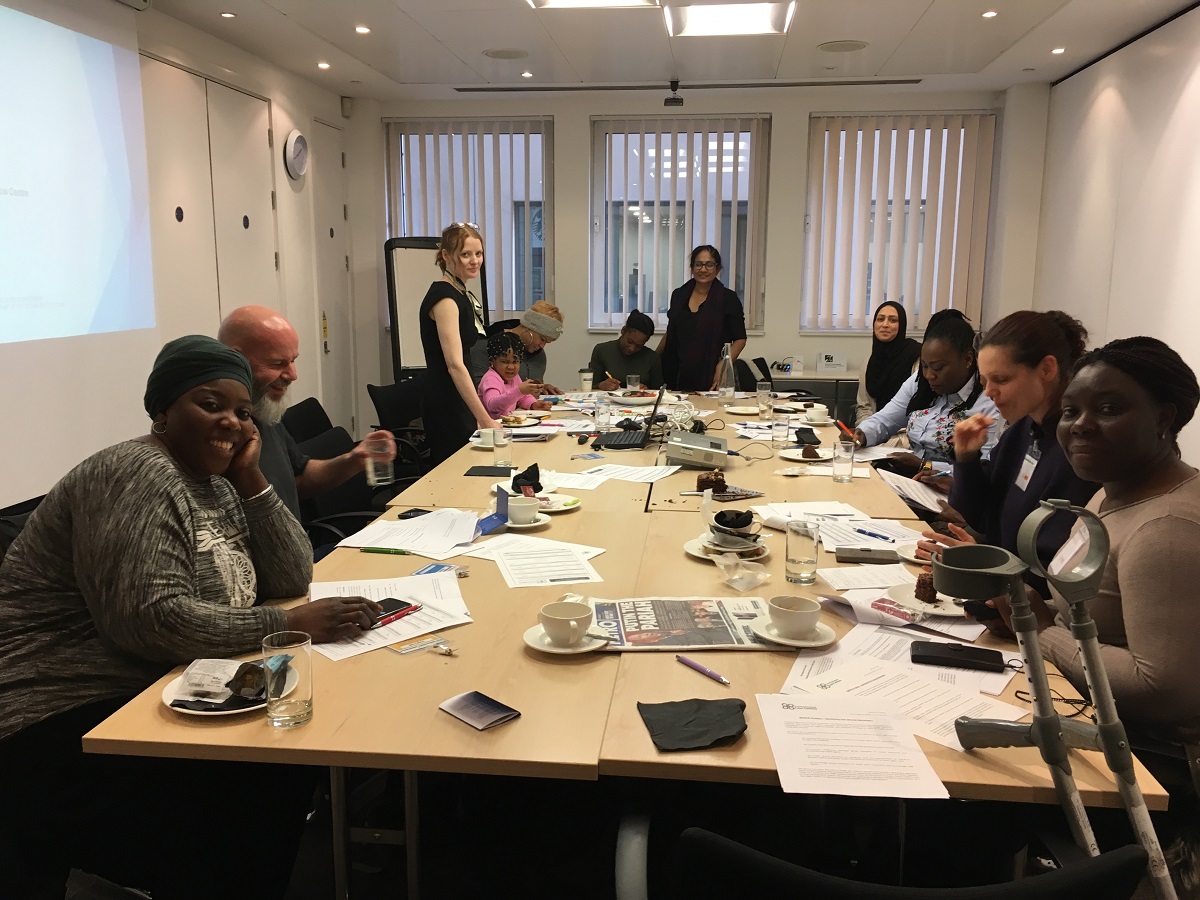
A day in the life of a Health and Social Care Law Solicitor…
“In this job, every day is different. When doing casework , I might have started my day seeing someone about an assessment that hasn’t been done properly. That might mean they can’t go to the toilet, because they don’t have support, they are having accidents.
“Alongside that, I might have been challenging a policy that was causing problems to a group of individuals. This could be a case at national level where you are fighting the discriminatory effect of a legal provision against a particular client group or at local level challenging a policy that negatively impacted vulnerable individuals. It’s really varied, day by day, with different cases.
“Right now, I’m working to develop our rights and community strategy so my days involve speaking to colleagues to make sure we are coordinating to maximise our impact, linking together our work to offer the best service we can to our community. That could involve speaking to organisations or individuals, drafting submissions, or delivering presentations for conferences like the one I am working on now about the new Downs Syndrome Act and how that’s going to feed into the existing social care legal framework for children and adults with Downs Syndrome.
“No two days are the same. That’s part of what makes it so interesting.”
Follow the work of the Central England Law Centre through Twitter or Facebook.
This is one in a series of human rights careers interviews, advising on the first steps to securing a job that makes a difference. Read more here:
- How to be a human rights lawyer
- How to be a barrister
- Building a human rights career: What are my options?
If you work in a human rights-related career and want to share your story, get in touch with us at hello@lacuna.org.uk

